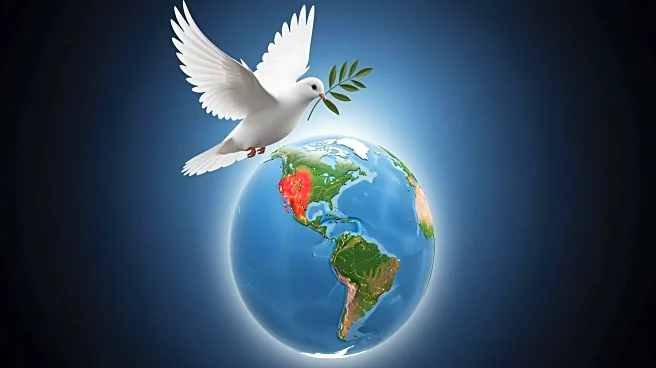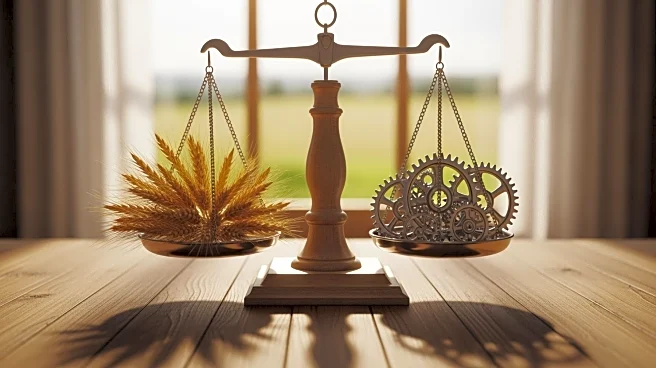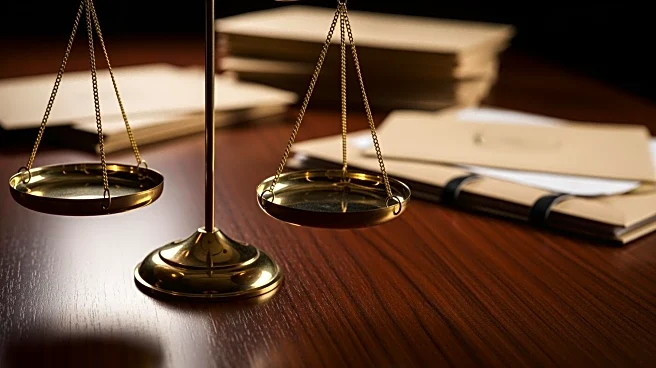What's Happening?
Pope Leo, the first American-born Pope, has issued a strong critique of President Donald Trump's administration, particularly focusing on the treatment of migrants in the United States. He has called for
'deep reflection' on the controversial policy of mass deportation, highlighting the impact on individuals who have lived in the U.S. for many years without causing problems. Additionally, Pope Leo expressed concerns over the U.S. bombing of Venezuelan ships suspected of carrying drugs, warning that such actions could escalate regional tensions. This marks one of the Pope's most direct criticisms of President Trump since his election earlier this year.
Why It's Important?
Pope Leo's statements are significant as they represent a rare and direct intervention by the Vatican in U.S. domestic and foreign policy matters. His criticism could influence public opinion, especially among Catholic communities in the U.S., potentially affecting political dynamics. The Pope's remarks also underscore the ongoing global debate about migration policies and humanitarian treatment, challenging the U.S. administration's stance. Furthermore, his comments on Venezuelan tensions highlight concerns about U.S. military actions and their potential to destabilize international relations.
What's Next?
Pope Leo's comments may prompt reactions from various stakeholders, including U.S. political leaders, religious groups, and international bodies. The Trump administration might respond to defend its policies, while advocacy groups could use the Pope's statements to bolster calls for policy changes. The Vatican's stance may also influence future diplomatic engagements between the U.S. and the Holy See, particularly on issues of migration and international conflict resolution.
Beyond the Headlines
Pope Leo's critique reflects broader ethical and moral considerations within the Catholic Church regarding the treatment of migrants and the use of military force. His position may encourage deeper discussions about the role of religious leaders in political discourse and the influence of moral teachings on public policy. The Pope's American origins add a unique dimension to his perspective, potentially bridging cultural and ideological divides within the Church and beyond.









